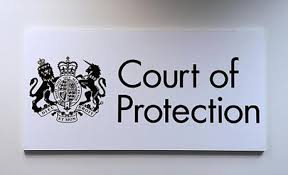
Power of Attorney
Clients will know that I advise everyone to arrange Power of Attorney. Often people believe that because generally older people are the ones who suffer from loss of faculty, only the aged need Power of Attorney. I would suggest that this is a very dangerous assumption to make.
Anyone can find themselves unable to make their own decisions. Being hospitalised due to an accident and being “comatose” would be one example. As society becomes rather better at understanding mental health issues (slowly) this can also result in the need for a Power of Attorney.
In essence, an Attorney is meant to act in your interests, as though they were you. This prevents the stressful and lengthy process of going to the Court of Protection, which, like many State institutions is currently “swamped”.

Protection in Action
A Power of Attorney is rarely overturned, but last month just such a case occurred. On 13th October 2015, the Court of Protection revoked the powers of an attorney who charged his elderly mother expenses of £117,289 for visiting her in her nursing home and acting as her attorney. The attorney applied the daily charging rate that he used when he was a self-employed independent consultant.
The judge made the comment that ‘one would be hard pressed to find a more callous and calculating attorney, who has so flagrantly abused his position of trust’ with Senior Judge Lush adding that ‘charging one’s elderly mother a daily rate of £400 for visiting and acting as her attorney is repugnant’.
Even though the son, Martin is named as the sole beneficiary of his mother’s estate, attorneys must never take advantage of their position or profit from it, apart from receiving gifts where the law allows it.
The law actually states:
“A fiduciary duty means attorneys must not take advantage of their position. Nor should they put themselves in a position where their personal interests conflict with their duties. They must also not allow any other influences to affect the way in which they act as an attorney. Decisions should always benefit the donor, and not the attorney. Attorneys must not profit or get any personal benefit from their position, apart from receiving gifts where the Act allows it, whether or not it is at the donor’s expense.”
When Martin suggested that the appointment of a panel deputy would be a waste of time and money because his mother’s estate is effectively already his. Senior Judge Lush disagreed, stating that, “the panel deputy will, for the first time in eleven years, place Sheila at the centre of the decision-making process, rather than view the preservation and enhancement of Martin’s inheritance as the paramount consideration”.
Dominic Thomas
Solomons IFA
You can read more articles about Pensions, Wealth Management, Retirement, Investments, Financial Planning and Estate Planning on my blog which gets updated every week. If you would like to talk to me about your personal wealth planning and how we can make you stay wealthier for longer then please get in touch by calling 08000 736 273 or email info@solomonsifa.co.uk